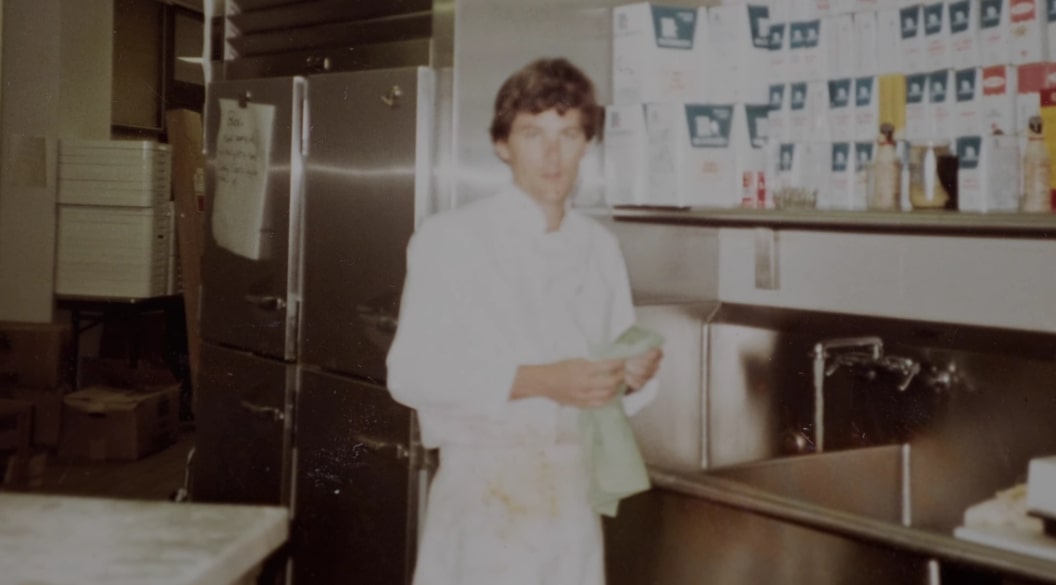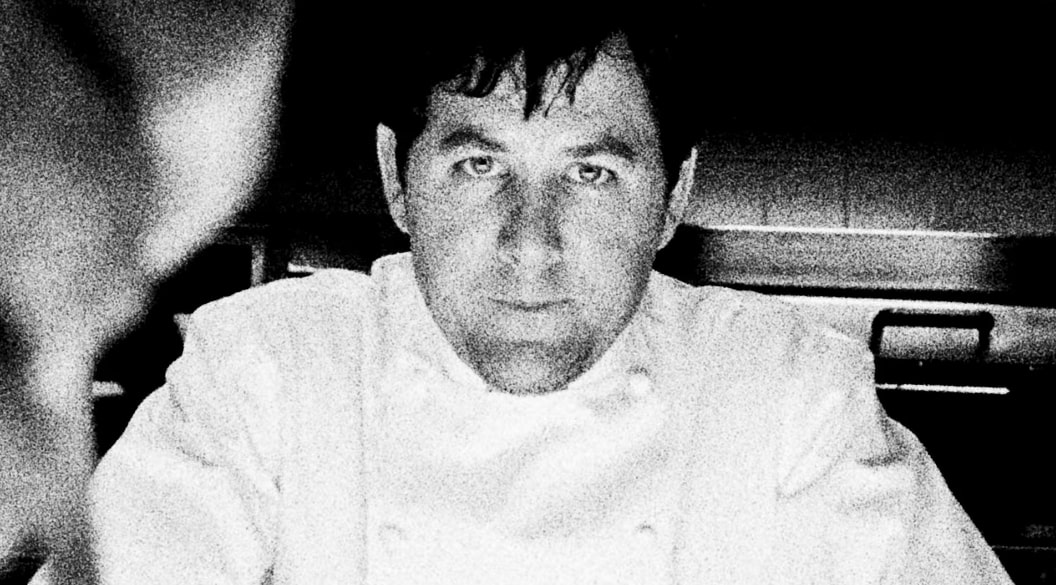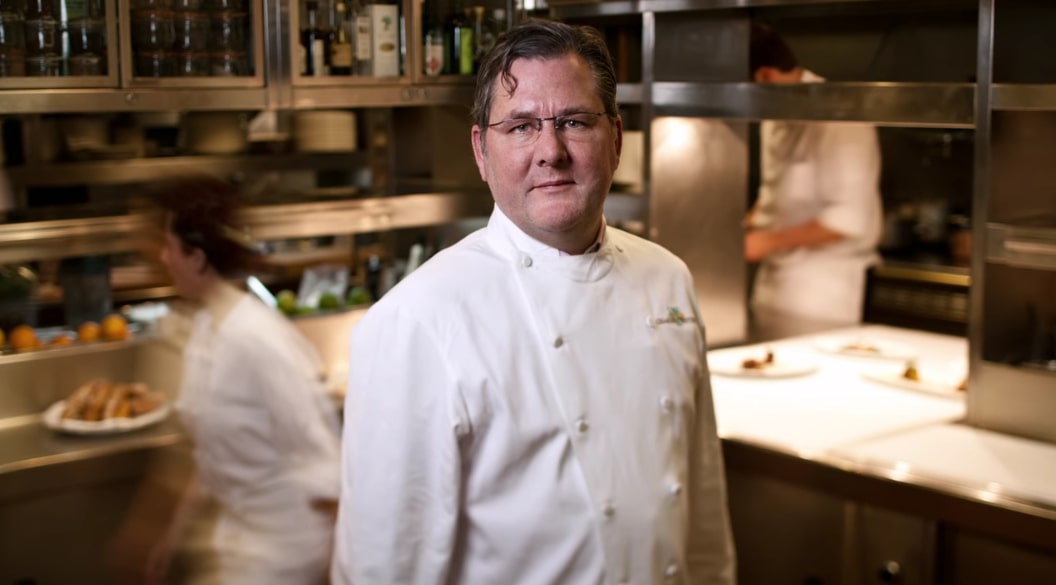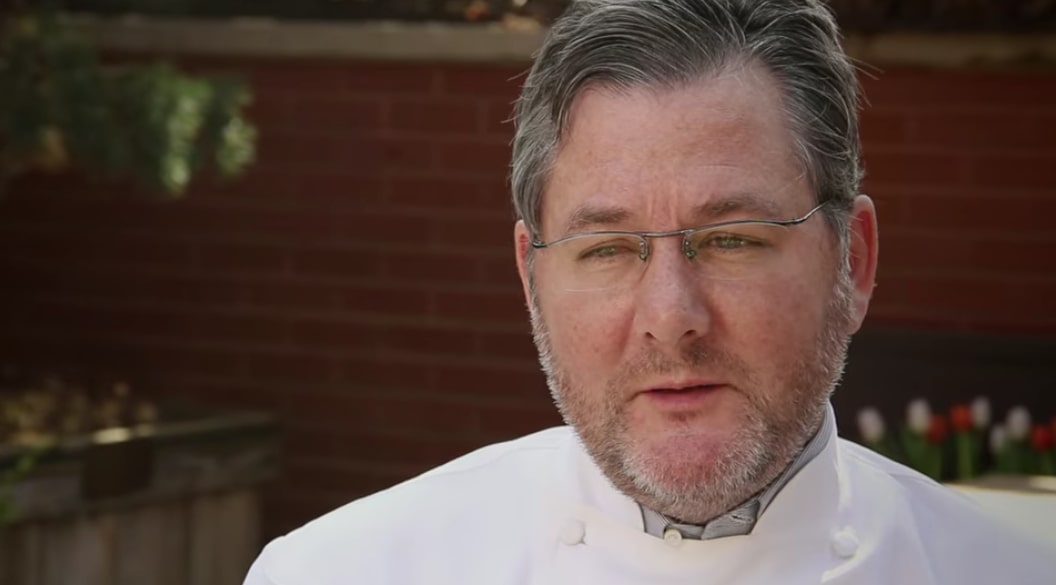While it’s true that most professional chefs’ love for food began at home while they were growing up, legendary culinary icon Charlie “Chuck” Trotter admittedly had a much different experience. In fact, as per Netflix’s ‘Love, Charlie: The Rise and Fall of Chef Charlie Trotter,’ the meals he had most of his early life were just from his loving yet non-cook mother’s repertoire of eight dishes. The fact they weren’t a restaurant family also meant they rarely ate out — not more than 2 or 3 times a year — which is what made his success in this industry all the more incredible.
How Did Charlie Trotter Earn His Money?
When Charlie was merely a 16-year-old New Trier High School junior, he landed his very first job as a waiter at The Ground Round in his hometown of Wilmette, Illinois. That’s when he realized he had a deeper relationship with food, driving him to pursue similar jobs while earning his Bachelor’s in Political Science from the University of Wisconsin in Madison. He actually worked at a restaurant called The Monastery and even had to dress up like a monk, only to then continue serving at similar theme-type establishments to get a sense of his calling.

According to the aforementioned documentary, Charlie kickstarted his journey as a chef by cooking for his roommates in college before gradually honing his skills with the help of cookbooks. Little did he know this would ignite a fire in him to become a culinarian, resulting in his subsequent decision to explore/study the industry for the ensuing few years through firsthand experience. Whether it be Chicago, San Francisco, Miami, France, Switzerland, or various other parts of Europe, he traveled everywhere and tried everything prior to conceptualizing his own high-end restaurant.
It was in 1987 that Charlie launched his namesake restaurant in Chicago with his father as his financier/partner, unaware his unique menu would gain unimaginable traction from the get-go. He was arguably the first chef to make quinoa as well as exotic vegetables famous, all the while highlighting that vegetarian dishes can be as great and filling as meat-based ones if cooked right. As for his menu, it changed weekly, if not daily — Charlie Trotter’s specialized in tasting menus (or degustation menus), which spanned ten courses made up of seasonal goods with no focal point.

With the public sensation behind Charlie’s restaurant came opportunities for cookbooks and television shows, which he took complete advantage of to get ahead without compromising his business. Thus came PBS’ ‘The Kitchen Sessions with Charlie Trotter,’ 14 cookbooks, three management books, his own line of organic gourmet foods, plus a cameo in the 1997 film ‘My Best Friend’s Wedding.’ It was actually a well-known fact he was harsh and expected a lot from his employees, so he was eventually subject to several labor law lawsuits too, but he settled most of them out of court.
While Charlie may have often been brusque in his tone, he also apparently did his best to give back to those around him and society as a whole through the Charlie Trotter Culinary Education Foundation. As if that’s not enough, he even helped some employees with their finances, pushed their careers to new heights, encouraged innovation, and hosted groups of public school students into his restaurant at least two times a week to ensure they received healthy meals. But alas, by the time late 2011 rolled around, he knew he’d given everything he had to his ventures and chose to close his two Michelin-starred Charlie Trotter’s restaurant on its 25th anniversary.

Charlie had owned-operated his high-end catering plus deli store called Trotter’s To Go for several years by this point too, so that also shut down, with the decision they would soon auction off most of their combined cutlery, furniture, wine bottles, and remaining products. In the end, though, this chef cut the auction short because he believed nothing was going for the price it deserved — he knew he had built a legacy, and so he wanted the price to match it. We should mention he briefly even served as the owner of the seafood restaurant C in Los Cabos, Mexico (2004-2008) plus the high-end Restaurant Charlie in Las Vegas, Nevada (2008-2010).
Charlie Trotter’s Net Worth
Considering a single meal at Charlie’s primary Chicago location was priced around $100 in its early years and thus estimated at nearly $1,000 towards the end, it’s safe to assume he accumulated a fortune for himself. We estimate he likely earned around $50 million from this restaurant alone throughout its long run, out of which his operation costs probably took up at least 80% (if not more) owing to all the different avenues of produce, salaries, maintenance, etc., involved. This means his net income from just this patronage was $10 million, around the same as his gross revenue from the deals/sales surrounding his 17 published books from 1994 to 2009.
From what we can tell, Charlie made roughly $500,000 on each of his written texts — 14 cookbooks as well as three management books — which made his earnings total (17 x 0.5 million) $8.5 million. Then, assuming the margin he had for these was a relatively higher 50%, his overall profits, as in the money he was likely able to pocket for himself in the long run, were a potential $4.25 million. As for his public appearances, product line, deli shop, plus other restaurants over the years, we believe he garnered a collective $3.5 million ($700,000, $800,000, $1 million, and $1 million, respectively) upon considering incomes, costs, extra expenditures, etc.
Charlie’s absolute net gains come up to nearly $18 million from his decades of hard work — this is a totality of all his revenues, meaning $10 million + $4.25 million + $3.5 million. However, to calculate his actual worth, we need to take factors like his association with different charities ($2 million), lawsuits ($3 million), philanthropic work ($4 million), plus possible investments and their returns ($1 million) into consideration too. Therefore, according to our best estimates, Charlie Trotter’s net worth at the time of his demise on November 5, 2013, was $10 million.
Read More: Lisa Ehrlich: Where is the First Wife of Charlie Trotter Now?


You must be logged in to post a comment.